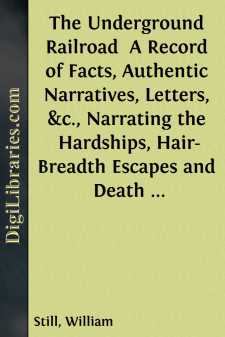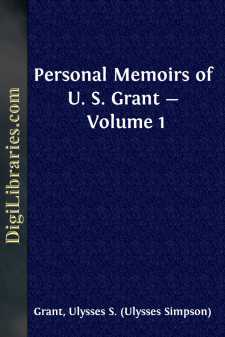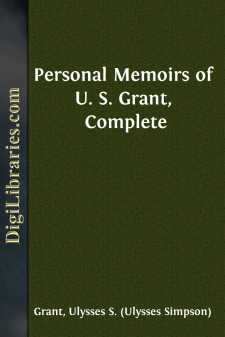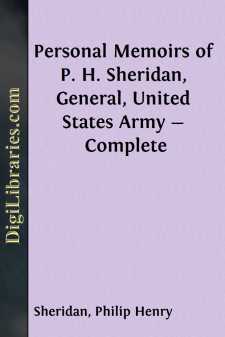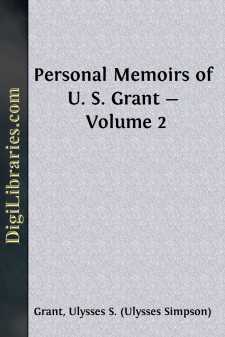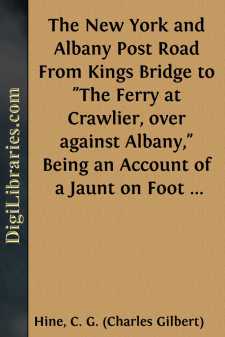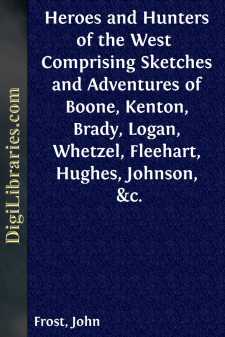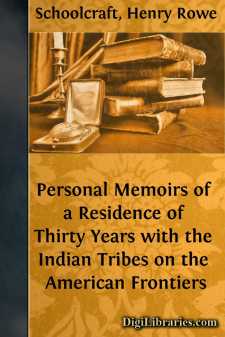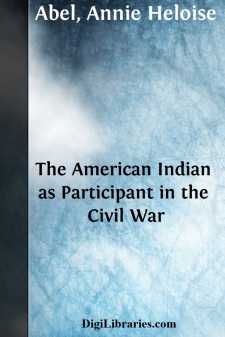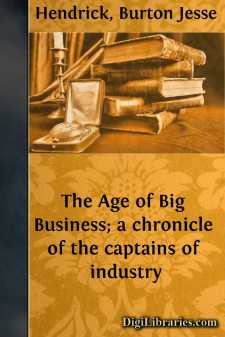History
- Africa 30
- Americas (North Central South West Indies) 50
- Ancient 68
- Asia 58
- Australia & New Zealand 8
- Canada 41
- Caribbean & West Indies 1
- Civilization 20
- Eastern Europe 12
- Europe 310
- Expeditions & Discoveries 60
- General 77
- Historical Geography 1
- Jewish 9
- Latin America 3
- Medieval 8
- Middle East 13
- Military 248
- Revolutionary 8
- Study & Teaching 5
- United States
- Western Europe 56
- World 13
United States Books
Sort by:
by:
William Still
THE UNDERGROUND RAILROAD * * * * * SETH CONCKLIN. In the long list of names who have suffered and died in the cause of freedom, not one, perhaps, could be found whose efforts to redeem a poor family of slaves were more Christlike than Seth Concklin's, whose noble and daring spirit has been so long completely shrouded in mystery....
more...
CHAPTER I. ANCESTRY—BIRTH—BOYHOOD. My family is American, and has been for generations, in all its branches, direct and collateral. Mathew Grant, the founder of the branch in America, of which I am a descendant, reached Dorchester, Massachusetts, in May, 1630. In 1635 he moved to what is now Windsor, Connecticut, and was the surveyor for that colony for more than forty years. He was also, for many...
more...
CHAPTER I. ANCESTRY—BIRTH—BOYHOOD. My family is American, and has been for generations, in all its branches, direct and collateral. Mathew Grant, the founder of the branch in America, of which I am a descendant, reached Dorchester, Massachusetts, in May, 1630. In 1635 he moved to what is now Windsor, Connecticut, and was the surveyor for that colony for more than forty years. He was also, for many...
more...
My parents, John and Mary Sheridan, came to America in 1830, having been induced by the representations of my father's uncle, Thomas Gainor, then living in Albany, N. Y., to try their fortunes in the New World: They were born and reared in the County Cavan, Ireland, where from early manhood my father had tilled a leasehold on the estate of Cherrymoult; and the sale of this leasehold provided him...
more...
CHAPTER XL. FIRST MEETING WITH SECRETARY STANTON—GENERAL ROSECRANS—COMMANDING MILITARY DIVISION OF MISSISSIPPI—ANDREW JOHNSON'S ADDRESS—ARRIVAL AT CHATTANOOGA. The reply (to my telegram of October 16, 1863, from Cairo, announcing my arrival at that point) came on the morning of the 17th, directing me to proceed immediately to the Galt House, Louisville, where I would meet an officer of the...
more...
The Hudson Valley, above all other places in this country, combines historic and romantic interest with the beauties of nature. It is one hundred and fifty miles crowded with the splendors of mountain and forest and river, and replete with incident and legend. To quote George William Curtis: "Its morning and evening reaches are like the lakes of a dream." Everyone who visits New York comes or...
more...
by:
John Frost
Daniel Boone. In all notices of border life, the name of Daniel Boone appears first—as the hero and the father of the west. In him were united those qualities which make the accomplished frontiersman—daring, activity, and circumspection, while he was fitted beyond most of his contemporary borderers to lead and command. Daniel Boone was born either in Virginia or Pennsylvania, and at an early age...
more...
SKETCHES LIFE OF HENRY A. SCHOOLCRAFT. The early period at which Mr. Schoolcraft entered the field of observation in the United States as a naturalist; the enterprise he has from the outset manifested in exploring the geography and geology of the Great West; and his subsequent researches as an ethnologist, in investigating the Indian languages and history, are well known to the public, and may be...
more...
I. THE BATTLE OF PEA RIDGE, OR ELKHORN, AND ITS MORE IMMEDIATE EFFECTS The Indian alliance, so assiduously sought by the Southern Confederacy and so laboriously built up, soon revealed itself to be most unstable. Direct and unmistakable signs of its instability appeared in connection with the first real military test to which it was subjected, the Battle of Pea Ridge or Elkhorn, as it is better known...
more...
CHAPTER I. INDUSTRIAL AMERICA AT THE END OF THE CIVIL WAR A comprehensive survey of the United States, at the end of the Civil War, would reveal a state of society which bears little resemblance to that of today. Almost all those commonplace fundamentals of existence, the things that contribute to our bodily comfort while they vex us with economic and political problems, had not yet made their...
more...


